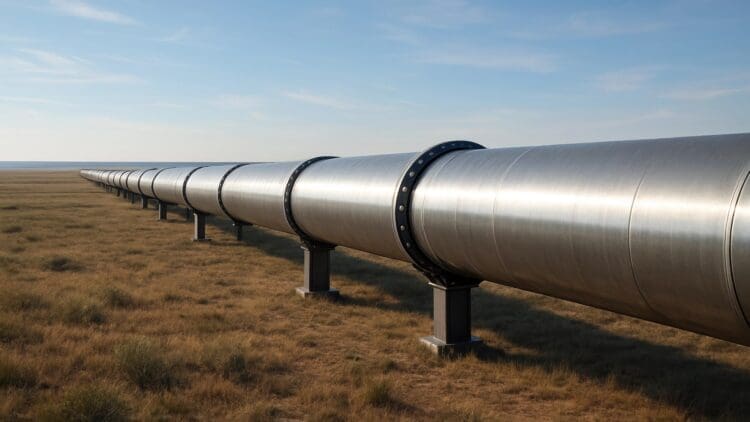The US energy market has seen tremendous growth in the gas and LNG sector as the world aims to transition away from conventional oil and coal projects in favor of the transitional nature of gas. Keeping that in mind, Cardinal Midstream has outlined a series of new pipelines to move Permian volumes to Mexico and the Texas coast through 2030. The Dallas-based company has become a mainstay in the Permian, which holds significant volumes of natural energy resources despite decades of operations.
The United States energy sector has seen an increase in demand from buyers
The energy market in the United States has been as volatile in recent months as a jilted ex-girlfriend with a vendetta. Several huge energy companies have lamented the directive that the current administration has undertaken, forcing operators to continue projects well beyond their planned closures as US President Donald Trump aims to increase oil production.
That does not mean the US energy sector is suffering, far from it in fact. The American energy market is booming at the moment due to the increased demand from nations, as the latest round of sanctions on Russian energy has forced buyers into a corner, searching desperately for an alternative non-Russian energy supplier. Up steps the USA to fill the gap.
Texas-based Cardinal Midstream Partners continues to expand its Permian operations
Cardinal Midstream has successfully completed new natural gas gathering pipelines and has outlined its plans to expand its Pecos River Processing Complex in Loving County. The firm’s Permian basin operations have become the foundation for a revival of US-based operations as a litany of buyers enters the US market. The Permian has become as part of the American identity as Apple Pie, with several energy majors operating in the region.
Cardinal Midstream has built several miles of new gas pipelines in the Permian basin
The independent midstream company has stated that it has completed 36 miles of new large-diameter, high- and low-pressure natural gas gathering pipelines in Loving County and Eddy County, NM. The US gas sector is experiencing an evolution of sorts at the moment.
Cardinal now owns and operates roughly 150 miles of natural gas infrastructure in the Permian’s Delaware sub-basin, and has stated that it has the capability to add more miles of pipeline in the future as needed. Cardinal plans to add 220 MMcf/d of natural gas processing capacity at its extensive Pecos River Processing Complex, increasing capacity significantly to 360 MMcf/d.
Plans outlined by the company note an expected completion date in early 2026. The expansion forms part of a broader initiative to increase operations at the Permian to boost the company’s bottom line in the next few years. Gas pipelines serve the international energy market as several nations now have substantial pipelines operating or in development.
“The Delaware Basin continues to see unprecedented growth with production expected to increase for years to come. These significant expansion projects provide high-quality energy infrastructure that ensures reliable midstream services for our customers’ future development.” – Cardinal Midstream CEO Doug Dormer
The Permian basin has seen several new pipelines constructed in recent years
The Permian has become home to a myriad of energy majors in recent years, with WhiteWater Development LLC partnering with MPLX LP, Oneok Inc., and Enbridge Inc. on the Eiger Express Pipeline that links the Permian operations to the Gulf Coast. Even the recently sanctioned Russia is developing astonishingly large pipelines, marking the trend of gas infrastructure development across the world. Cardinal Midstream’s Permian operations are set to surge in the years to come as more and more nations experience increases in gas and LNG demand from the flock of buyers all looking for the best deal.






